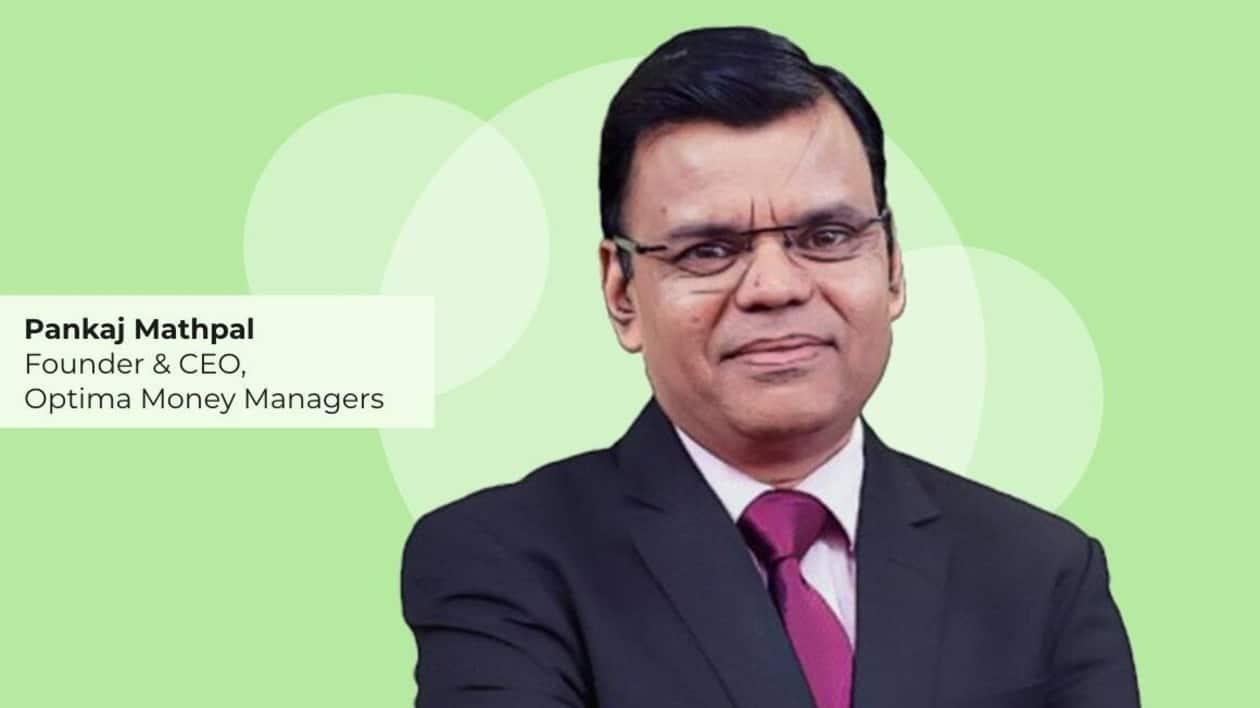ELSS is one of the best choices of investment for claiming deduction u/s Section 80C of the Income Tax Act, says Pankaj Mathpal, Founder & CEO, Optima Money Managers.
In an interview with MintGenie, Mathpal said that one must plan to repay the loan at the earliest and increase the amount of EMI accordingly but shouldn't compromise with their investment plan.
Edited Excerpts:
Q. The returns from the stock market are not as high as before. The effect of inflation has made it difficult to save. What strategies should people then adopt to achieve financial independence early in life?
The equity market has corrected from its peak and it's providing an opportunity for long-term investment at a fair valuation. It’s a good time to accumulate shares and units of equity mutual funds to reap the benefits in long term. At the same time if you are a short to medium-term investor then investing in bonds or debentures directly or investing in debt-oriented mutual funds at this point in time may be more suitable for you.
Q. Increased loan rates have caused many to seek prolonged tenures with some also extending beyond their retirement age. Do you think this practice will set a dangerous precedent for our current credit-hungry generation?
Under the floating rates system, home loan interest rates keep changing from time to time during the tenure of the loan. The first thing borrowers should keep in their mind is that the revised loan tenure presently is based on the current interest rate but the same will be revised downwards when interest rates drop. So, it may not be as long as you see it right now but still, there will be some impact on the tenure.
If you want to pay your loan within the original term of the loan then you have mainly two options in your hands. One, you should negotiate with your bank to reduce the rate of interest on your loan, and in case they don't agree then you may even consider transferring the balance loan to another bank that offers you lower interest rates.
The second option is to make an additional payment to your bank or financial institution in addition to the regular EMI payments or to increase the EMI to the extent that the loan is repaid by the original tenure or even before that.
Q. Amidst growing loan interest rates, should borrowers focus on loan repayment or on continuing their investments?
One should plan to repay the loan at the earliest and increase the amount of EMI accordingly but shouldn't compromise with their investment plan. Liquidity is important and one should have money available in their hands for their financial goals.
Q. Government-sponsored tax-saving schemes are losing their sheen due to stagnant interest rates. Does this stress the need to allocate money to ELSS instead?
First one should check if the old tax regime is more suitable for them as deductions u/s 80C of the Income tax act is not available under the new tax regime. ELSS is one of the best choices of investment for claiming deduction u/s Section 80C of the Income Tax Act, 1961. ELSS is an equity-oriented mutual fund scheme and offers potential growth in the long term though the lock-in period is only 3 years which is the shortest among all tax saving schemes under the said section. Also, the long-term capital gains tax is applicable on ELSS at a special rate of 10 per cent which makes them more tax efficient compared to many other tax savings schemes.
Q. Debt funds and foreign investments have lost indexation benefits. Does this mean an increased preference for bank deposits?
No, despite the tax parity between them debt funds and foreign investment may deliver better returns compared to bank deposits in the same investment period. Bank Fixed deposits have their own benefits as they offer fixed interest on them and a deposit up to ₹5 lakhs per bank is insured by Deposit Insurance and Credit Guarantee Corporation but investors should not ignore debt funds and international funds simply because the indexation benefit been withdrawn on long-term capital gains from them.
Q. Bank stocks have reached their preferred valuation levels. Should investors now look at greater allocation to funds or investments allocating money heavily to the banks and financial services sector?
The banking index has appreciated by around 25 per cent from its 52-week low and valuation is no more attractive. I suggest retail investors should always stick to diversified funds instead of investing in any sectoral funds.
